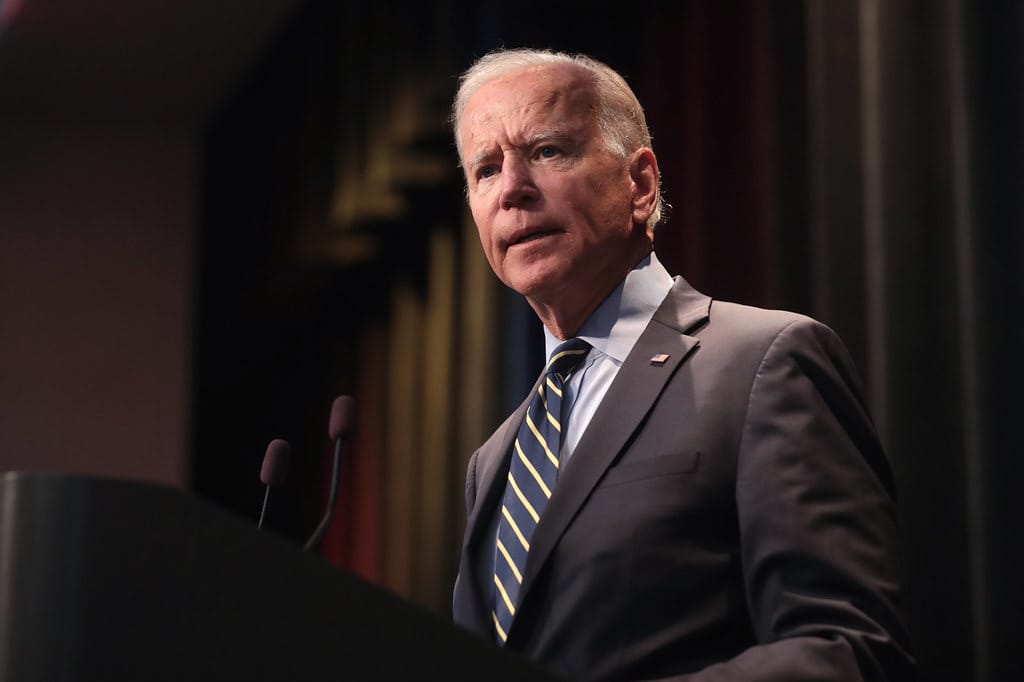A White House Event, Biden Administration Seeks Regulation of Big Tech
Participants voiced concerns over alleged abuses by big tech companies.

WASHINGTON, September 9, 2022 – President Joe Biden on Thursday called for a federal privacy standard, Section 230 reform, and increased antitrust scrutiny against big tech.
“Although tech platforms can help keep us connected, create a vibrant marketplace of ideas, and open up new opportunities for bringing products and services to market, they can also divide us and wreak serious real-world harms,” according to a White House readout from the administration’s listening session on Thursday.
Participants at the White House event voiced concerns over alleged abuses by big tech companies.
A new data privacy regime?
The Biden administration called for “clear limits on the ability to collect, use, transfer, and maintain our personal data.” It also endorsed bipartisan congressional efforts to establish a national privacy standard.
Last June, Rep. Frank Pallone Jr., D-N.J., introduced the American Data Privacy and Protection Act. The bill gained substantial bipartisan support and was advanced by the House Energy and Commerce Committee in July.
In the absence of federal privacy laws, several states drafted privacy laws of their own. The Golden State, for instance, implemented the California Consumer Privacy Act in 2018. The CCPA’s protections were extended by the California Privacy Rights Act of 2020, which goes into effect in January 2023.
Biden maintains his position seeking changes to Section 23o
“Tech platforms currently have special legal protections under Section 230 of the Communications Decency Act that broadly shield them from liability even when they host or disseminate illegal, violent conduct or materials,” argued the White House document.
Biden’s hostility towards Section 230 is not new. Section 230 protects internet platforms from most legal liability that might otherwise result from third party–generated content. For example, although an online publication may be guilty of libel for a news story it publishes, it cannot be held liable for slanderous reader posts in its comments section.
Critics of Section 230 say that it unfairly shields rogue social media companies from accountability for their misdeeds. And in addition to Biden and other Democrats, many Republicans are dislike the provision. Sens. Ted Cruz, R-Texas, and Josh Hawley, R-Missouri, argue that platforms such as Twitter, Facebook, and YouTube discriminate against conservative speech and therefore should not benefit from such federal legal protections.
Section 230’s proponents say that it is the foundation of online free speech.
Ramping up antitrust
“Today…a small number of dominant Internet platforms use their power to exclude market entrants,” Thursday’s press release said. This sentiment is consonant with the administration’s antitrust policies to date. Indeed, Lina Khan, chair of the Federal Trade Commission, was a vocal antitruster in the academy and has greatly expanded the scope of the agency’s antitrust efforts since her appointment in 2021.
In the Senate, Sen. Amy Klobuchar, D-Minnesota, is sponsoring the American Innovation and Choice Online Act, a bill that bans large online platforms from engaging in putatively “anticompetitive” business practices. The measure was approved by the Judiciary Committee earlier this year, and, though it was stalled over the summer to make way for other Democratic legislative priorities, it may come for a vote this fall.








